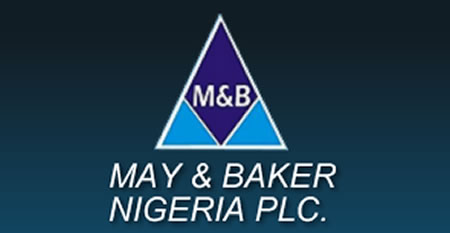May & Baker Nigeria Plc, a prominent pharmaceutical company, has issued a crucial appeal to the Federal Government regarding its pooled procurement initiative for pharmaceuticals. While lauding the initiative’s aim to reduce drug costs, the company’s Managing Director and CEO, Patrick Ajah, stressed the critical need for consistent and timely payments to local drug manufacturers. Ajah, a member of the government’s pooled procurement committee, warned that delayed payments could cripple local pharmaceutical companies, leading to business collapses and ultimately undermining the initiative’s objectives. He highlighted past experiences where similar government programs resulted in significant financial setbacks for participating companies due to prolonged non-payment of dues, leaving outstanding debts lingering for years. This precarious financial situation, Ajah cautioned, discourages participation and jeopardizes the long-term viability of local drug production. He emphasized that ensuring prompt payment is not merely a matter of fairness but a vital factor in the survival and growth of the domestic pharmaceutical industry.
The core issue revolves around the financial strain placed on local manufacturers when participating in government procurement schemes. While agreeing to lower drug prices for the benefit of the public, companies like May & Baker compromise their profit margins. Coupled with delayed payments, this creates a precarious financial situation, potentially leading to severe losses and even business closures. Ajah emphasized the devastating impact of such delays, pointing to the collapse of several pharmaceutical companies in recent times. He stressed the need for government assurances of timely payments to instill confidence and encourage continued participation in the pooled procurement initiative. Without this assurance, companies, already operating on thin margins, are reluctant to risk further financial instability. This reluctance, in turn, threatens the sustainability of the program and the nation’s ability to provide affordable medications to its citizens.
Ajah’s plea extends beyond the immediate issue of payment to a broader call for government support of local pharmaceutical manufacturers. He argues that bolstering domestic production is crucial for reducing Nigeria’s dependence on imported drugs. The current economic climate, he states, necessitates a stronger local pharmaceutical industry capable of meeting the nation’s healthcare needs. He advocates for policies that actively encourage and incentivize local production. This includes not only prompt payment for services rendered but also continued implementation of measures like the recent executive order waiving import duties on raw materials for drug production. Ajah lauded this order as a significant step in the right direction, demonstrating the government’s commitment to fostering a thriving domestic pharmaceutical sector.
This appeal for government support is interwoven with May & Baker’s broader commitment to public health, exemplified by its annual “Walk for Life” campaign held to mark World Hypertension Day. This initiative, according to Ajah, forms a key part of the company’s wellness strategy for its staff while simultaneously promoting regular health check-ups amongst Nigerians, particularly those over 40. He emphasized the importance of family history and lifestyle factors in assessing health risks and urged individuals to prioritize regular check-ups for early diagnosis and intervention. The Walk for Life campaign, he explained, has demonstrably increased health check participation among the company’s clients and the wider public, leading to earlier detection of health issues like hypertension.
The campaign’s success is measurable, with a noticeable uptick in health check appointments following each event. Ajah noted a consistent increase in the number of people seeking medical evaluations after the walks, indicating a growing awareness of the importance of preventative healthcare. This positive trend translates into more requests for May & Baker’s services, showcasing a direct link between public health advocacy and business performance. The company views this as a positive feedback loop, where its commitment to public health reinforces its role as a responsible corporate citizen and strengthens its connection with the community it serves.
May & Baker’s plea to the Federal Government represents a crucial juncture in the development of Nigeria’s pharmaceutical sector. The company’s call for consistent payment under the pooled procurement initiative is not just a matter of financial survival for participating companies; it is a critical factor in ensuring access to affordable medications for all Nigerians. By addressing the concerns raised by Ajah, the government can create a sustainable ecosystem that supports local pharmaceutical manufacturers, reduces reliance on foreign imports, and ultimately strengthens the nation’s healthcare system. The company’s proactive approach to public health, exemplified by the Walk for Life campaign, underscores the vital role of private sector involvement in promoting health awareness and access to care. The future of Nigeria’s pharmaceutical industry hinges on a strong partnership between government and industry, working together to create a robust and sustainable healthcare landscape.


